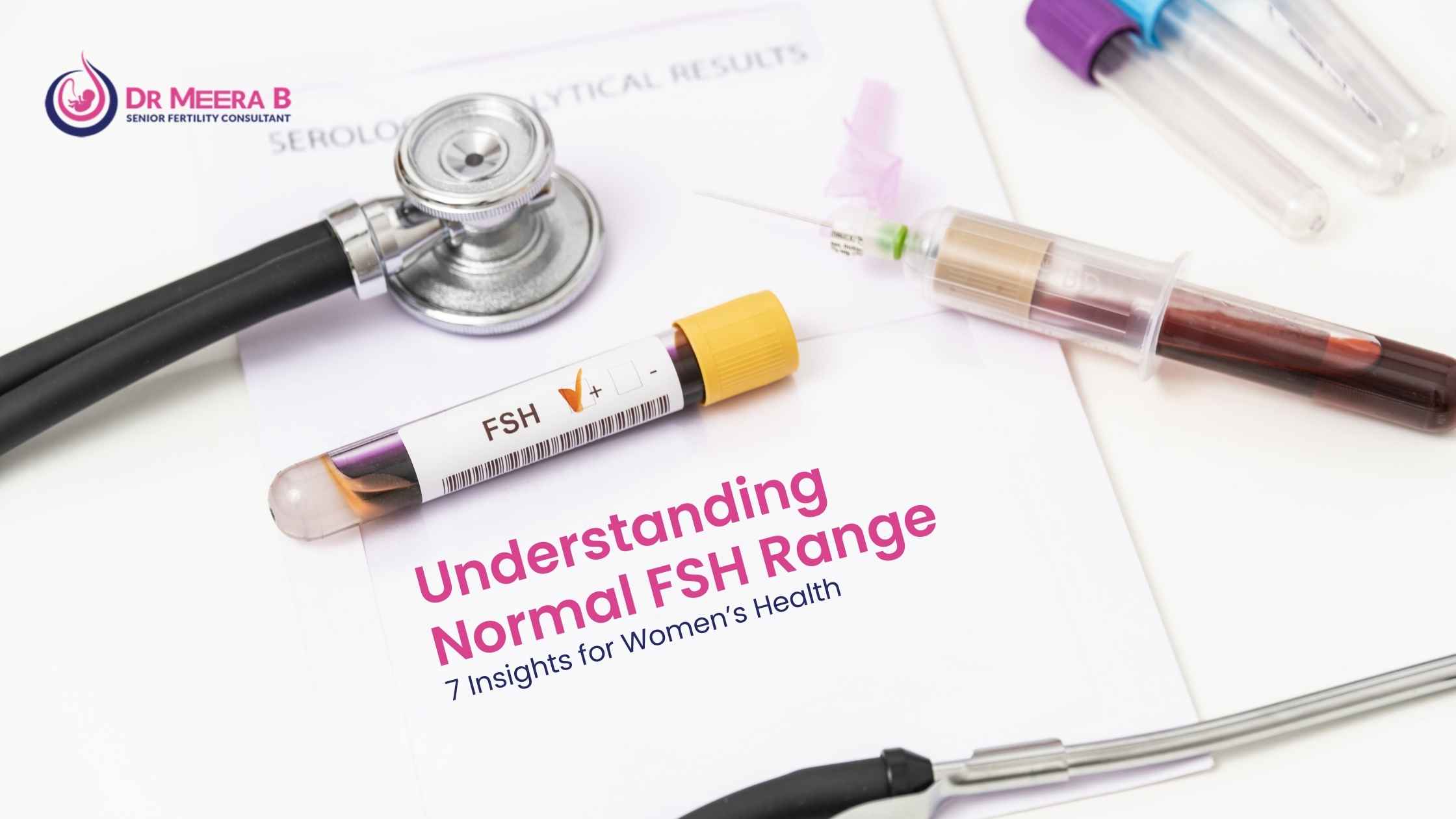What is FSH and why is its normal range important?
Follicle-stimulating hormone (FSH) is produced by the pituitary gland and regulates ovarian follicle development. The normal range of FSH hormone provides an essential baseline for reproductive potential. When levels deviate, it can signal conditions such as diminished ovarian reserve or early menopause. At Dr Meera B’s place of practice, including Aster PMF Hospital in Sasthamkotta, every evaluation begins with a detailed hormonal profile to ensure accurate diagnosis and personalized treatment.How does FSH hormone normal range vary across life stages?
The FSH hormone normal range isn’t fixed for every woman or every age. In reproductive years, typical levels are lower compared to perimenopause or menopause. Elevated levels may indicate the ovaries are working harder, often associated with reduced fertility. Dr. Meera B, with her 30+ years of experience and UK training at Bourn Hall Clinic, offers nuanced interpretation that takes your age, symptoms, and fertility goals into account.Why early testing of FSH normal ranges can prevent future complications
Proactive testing of FSH normal ranges allows early detection of reproductive challenges. Women delaying pregnancy or experiencing irregular cycles can avoid future disappointment by understanding their ovarian reserve today. By spotting trends early, Dr. Meera B can recommend interventions like lifestyle modifications, fertility preservation, or IVF timing strategies to safeguard your dreams of parenthood.Normal range of FSH and its link to fertility treatments
The normal range of FSH is closely monitored during fertility treatments like in vitro fertilization (IVF). Deviations can influence ovarian stimulation protocols, egg retrieval timing, and expected outcomes. At Dr Meera B’s place of practice, personalized protocols are designed based on these levels, maximizing success rates while minimizing discomfort. Her evidence-based approach, combined with compassionate care, has helped countless couples conceive.What lifestyle factors can influence normal FSH range?
Lifestyle elements—stress, body weight, smoking, and chronic illness—can subtly shift your normal FSH range. Maintaining a healthy BMI, managing stress, and seeking early gynecological advice can all make a difference. Dr. Meera B educates patients on holistic health strategies that support reproductive hormones, underscoring her dedication to long-term well-being, not just immediate fertility outcomes.When to consult an expert about FSH hormone normal range
If you’re over 30 and planning a family, or experiencing irregular cycles, hot flashes, or unexplained infertility, it’s time to consult a specialist. Understanding the FSH hormone normal range and its context requires expert interpretation. Dr. Meera B’s unmatched credentials—MBBS, DGO, DNB (O&G), MRCOG(UK), FRCOG(UK)—and her reputation as a trusted gynecologist in Kollam make her the go-to expert for reproductive guidance.How Dr. Meera B ensures accurate diagnosis and personalized care
At Dr Meera B’s place of practice, including Aster PMF Hospital Sasthamkotta, every patient receives world-class evaluation. Blood tests, ultrasound scans, and advanced lab analyses are combined to create a complete picture. Her deep training from Bourn Hall Clinic in Cambridge—the birthplace of the world’s first IVF baby—means her protocols are on par with international standards. Patients are never treated with a one-size-fits-all approach; instead, every plan reflects individual needs and aspirations.How to book an appointment with Dr. Meera B
To take charge of your reproductive health and get clarity on your normal FSH range, booking a consultation with Dr. Meera B is straightforward:- Fill out and submit the form at https://drmeerab.com/contact/.
- Call +91 9447145101 to request a scheduled appointment.
- Use the WhatsApp interface on her website to send a message requesting an appointment.


Comments are closed